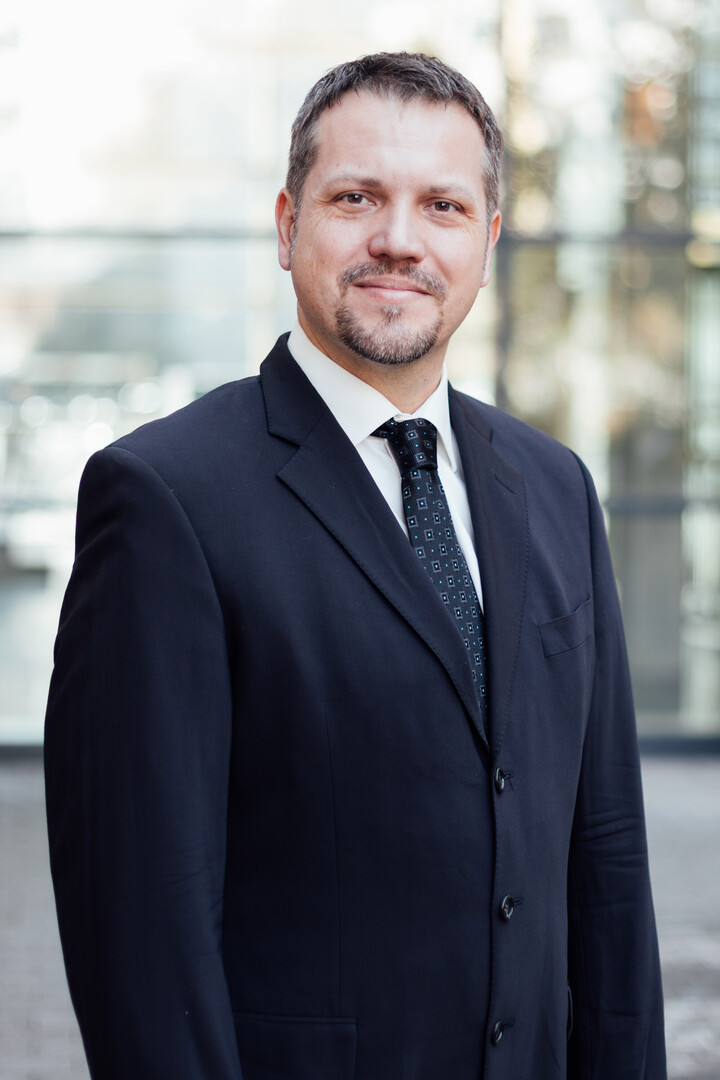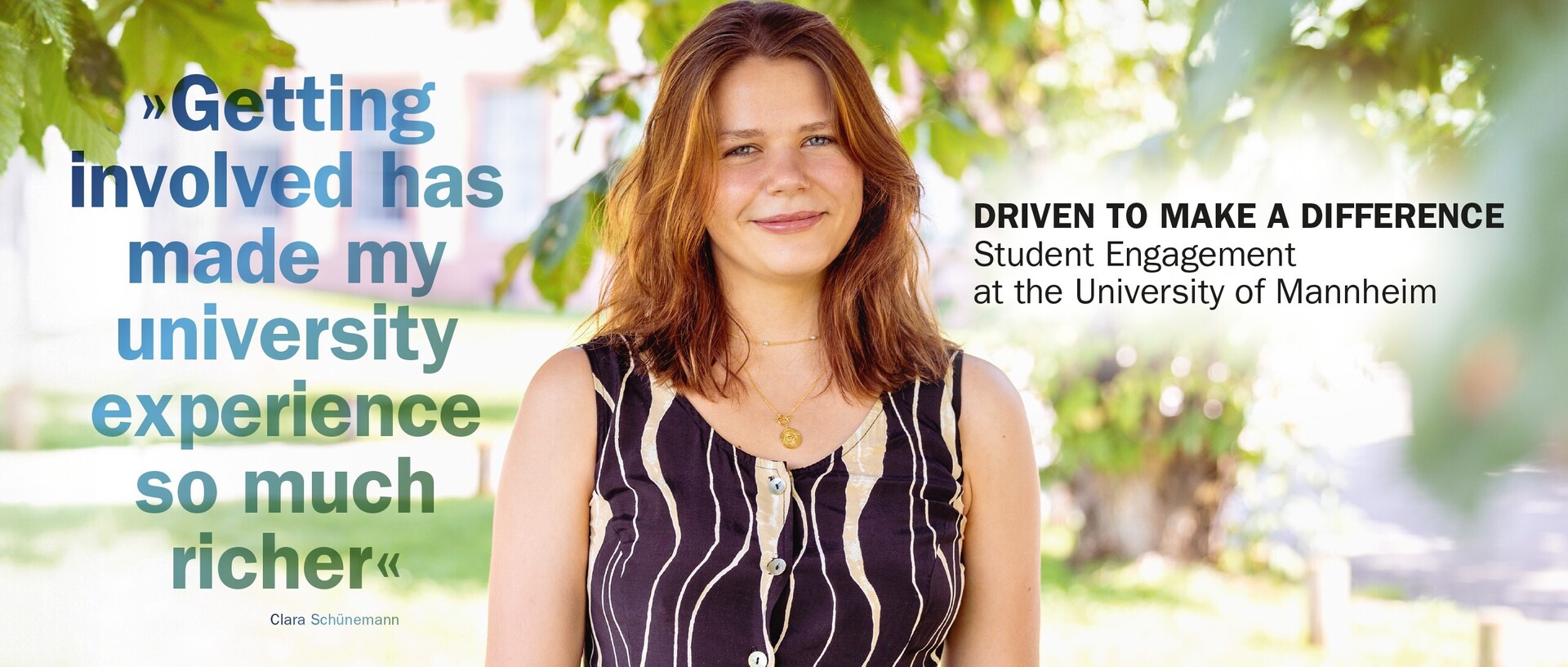Portrait of Prof. Dr. Frederik Armknecht
In his research and teaching, Mannheim professor Dr. Frederik Armknecht specializes in IT security, cryptography and blockchain. For FORUM, he explains how he returned to Mannheim after finishing his doctorate, why passwords will hopefully become obsolete in the future, and why a door lock offers no protection against tanks.

“Password,” “123456” or “qwertz” – most people are not very creative when choosing a password. And very few are aware of how much data is collected about them, where and when. Frederik Armknecht, Professor of Practical Computer Science at the University of Mannheim, has a clear answer to this: “More than you would think.” In his research, the computer scientist, a native of Worms, is primarily concerned with IT security and privacy.
Originally, however, he had a different plan: “In middle school, I had a strong interest in the theory of relativity and quantum physics. I also read many popular science books at the time, such as Stephen Hawking’s ‘A Brief History of Time,’” he recalls. But as a physics student at university, he didn’t like the experimental and practical parts of the discipline; he wanted his work and research to be more theoretical in nature. That’s why he decided to study mathematics in Karlsruhe. “I really enjoyed it. I still feel comfortable with mathematics.”
This is immediately clear when you enter his office in building B6. There are large whiteboards brimming with mathematical formulas so complex that it probably takes a degree in mathematics to decipher them. The windows offer a view of a courtyard full of green trees, it is very quiet – except for the almost earthquake-like vibrations whenever a bus passes by on the nearby street.
From doctoral student to colleague
After graduation, Armknecht decided to pursue a doctorate; the field of cryptography was especially appealing to him. But it was mainly a love interest that ultimately brought him to Mannheim. “My girlfriend at the time – now my wife – had already finished her studies and was working in the area. So I looked around and eventually applied for a position with professor Matthias Krause,” he recalls.
Today, his former doctoral supervisor has become a colleague, and Krause’s office is just around the corner. “I have very fond memories of my doctoral studies. It was one of the best periods of my life.” After a brief stint in the industry and some years at the universities of Bochum and Darmstadt, he returned to Mannheim in 2012. Since 2017, he has held the Chair of Practical Computer Science IV.
In his research, Armknecht is particularly interested in data encryption and privacy protection. In most cases, this is no easy task: You have to know exactly what you are protecting yourself against, and you also need to know the limits of that protection. “A front door with a lock offers a certain degree of security. However, if a tank breaks through the door, the lock is completely useless – and the door is obviously no longer secure,” he explains with a laugh. “But you can't blame the lock maker for that.”
Sharing data without compromising privacy
For many years, Armknecht’s research has focused on privacy and the ever-growing amounts of data collected through data science and networked electronic systems – the so-called “Internet of Things.” He wants to find ways of protecting this data without losing the benefits of data exchange. One example he likes to cite is the exchange of medical records between two hospitals: “The two hospitals can compare their data on patients without knowing who they are.” According to the computer scientist, this is a workable way of sharing data without compromising privacy.
However, Armknecht also points out some challenges in his research. Because as much as we want our data to be safe, we keep giving them away voluntarily. Whether it’s social media, the navigation app on our smartphones, or the fitness watch on our wrist. Although seeking ways to protect against the dangers inherent in such large amounts of data, he doesn’t lose sight of the opportunities involved.
Armknecht himself does not have any smart home devices such as a voice assistant, automatic shutters or an intelligent refrigerator at home. “But I’m not generally averse to these things and I don’t demonize them either.” In his opinion, the benefits of such devices do not outweigh the effort he would have to put in to protect his data.
A future without keys?
That said, he is confident about the future possibilities for smart homes: “Data that can be used to identify someone can also be used to authenticate someone.” According to one of Armknecht’s thought experiments, house keys might become completely obsolete in the future. Sensors could be used to measure exactly how a person pushes down a door handle. Hand temperature, pressure, speed, finger width: all this data can be measured within milliseconds at the door handle, thereby identifying the person and letting them open the door.
Armknecht and his team have already tested similar technologies for computers and smartphones. In the future, it may be possible to identify a person simply by the way they type a word on the keyboard or swipe their finger across the smartphone display. This is probably why, when asked for a perfect password, there is only one correct answer for Armknecht: “Ideally, no password at all.”
Text: Fabio Kratzmaier / August 2024
